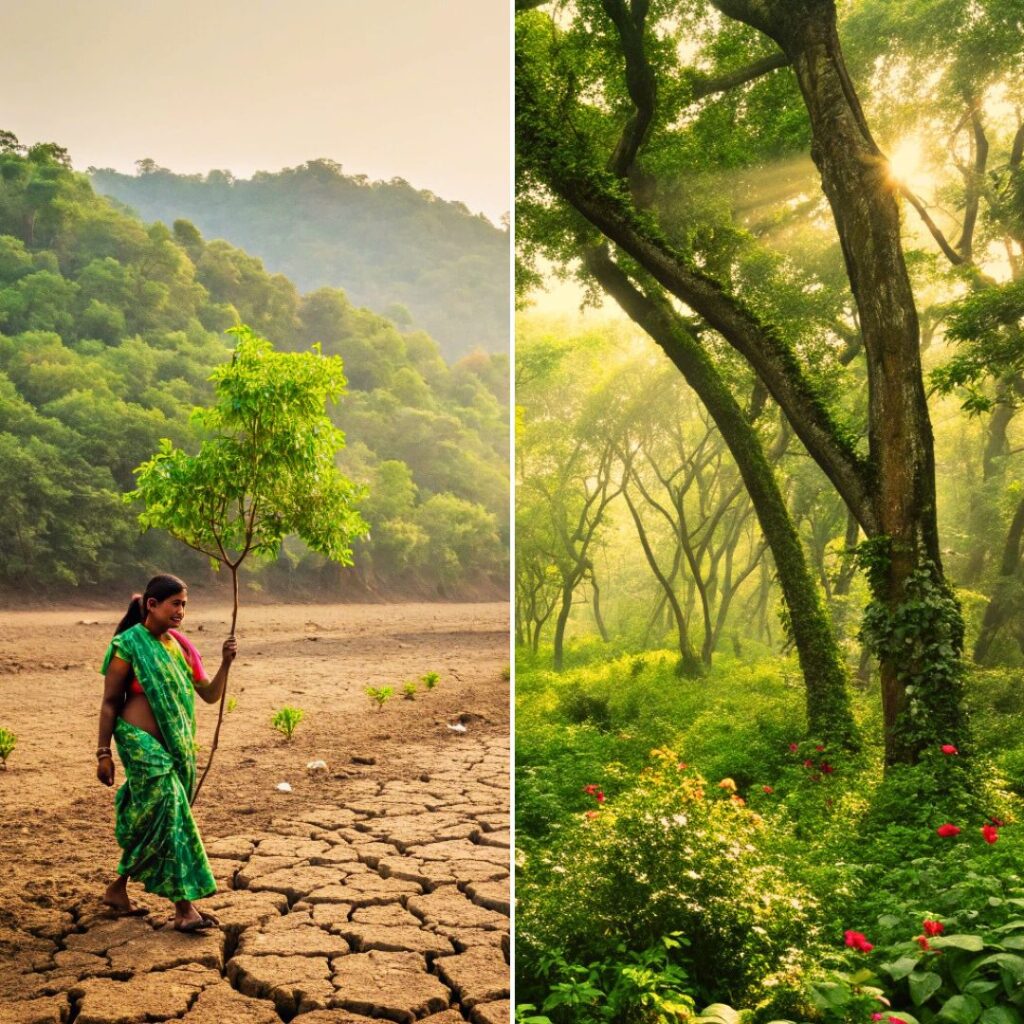Punjab is a northern state in India, comfortably nestled with five rivers flowing through the state. With a history of having several of its regions a part of the great Indus Valley Civilization, the state always boasted of its extremely fertile soil making agriculture a significant part of its economy. Rice, sugarcane, and cotton are grown in the state with wheat being the largest grown crop. Fruits and vegetables are also widely grown in the state. Punjab is considered the “Wheat bowl of India” since it produces up to 164.720 lakh net tons of wheat.
However, recent events like mounting farmer debt have been putting tremendous pressure on the tillers of the land and loan-waiver is not a permanent solution to the problem. Reportedly, earlier this week thousands of farmers staged a protest squatting on the railway tracks at Jandiala near Amritsar.
Heaven screaming for help
The state that paved way for the Green Revolution in the 1960s, has witnessed a drastic fall in the agricultural output over the years, with the farmers drowning in debt. The cost of inputs like labour, fuel, and fertilizers have increased over the years with the price of output remaining stagnant. The once fertile soil has turned to be running out of water-retention capacity due to increased use of chemicals and pesticides. Inadequate rainfall adding to the woes of the farmers. The groundwater is being used to irrigate 73% of the land in the state which has led to a sharp decline in the groundwater levels. In addition, there are no regulations on the digging of tubewells.
Wheat and Paddy come under the category of crops with a guaranteed minimum support price (MSP). However, growing paddy is stripping the land of water that affects the fertility of the soil in the long term. The prices of other crop are uneven and unregulated. When the farmers try growing other crops, marketing and earning from them becomes tricky. With farming becoming increasingly impracticable, the small farmers are leasing their land instead of farming it to avoid losses. For all the reasons mentioned, the farmers resort to debt from the financial institutions or private moneylenders. These debt-ridden farmers when unable to repay the loans succumb to the pressures and commit suicide.
Farmers and the Government
There are around 10.93 lakh farmers across Punjab, of which 2.04 lakh (18.7%) are marginal farmers (those having less than 2.5 acres of land), 1.83 lakh (16.7%) small farmers (those having 2.5 acres or up to 5 acres), and 7.06 lakh (64.6%) farmers have more than two hectares.
Captain Amarinder Singh, the Congress candidate, before 2017 Assembly Polls promised that his government would eradicate the instances of farmer suicide with a complete loan waiver scheme however with coming to power the scheme came with a catch.
The loan waiver scheme covered only those loans that were taken from banks and cooperative societies. It provided relief to marginal and small farmers for loans up to Rs 2 lakh availed from the lending institutions.
Debt-ridden farmers take their own lives Source: Tribune India
An astounding 900 farmers and labourers have reportedly committed suicide in the last two years.
This is according to a data compiled by Bharti Kisan Union (Ugrahan) from several news clippings related to farmer suicide appearing in five Punjabi newspapers since the Congress government took over in 2017. Sukhpal Manak, Press Secretary of Sunam block of the union, who prepared the list, said that the actual number might be higher as they have not included the suicides reported in local and news channels, Hindi and English newspapers and web portals.
The reports of several farmers committing suicide over a period of two years hint at the government’s failure to provide a safety financial cushion to them. The farmers who resorted to extreme steps of taking their lives have either not been covered under the waiver-scheme or had taken loans from private moneylenders. The Tribune reported that a 40-year-old debt-ridden farmer Gurmel Singh committed suicide after he was unable to repay the farm loans. In his suicide note, the victim cited mounting debts as the reason and stated that the state government did not provide any relief.
State Government’s reaction
Chief Minister Captain Amrainder Singh indulging in political blame- game, said states alone cannot do everything and they need assistance from the Centre as well. He was speaking during the launch of the third phase of his government’s loan waiver scheme at Anandpur Sahib on 24 January.
An extension to his existing scheme it now includes farm laborers and landless farming members of Primary Cooperative Agriculture Service Societies providing relief to nearly 2.85 lakh farmers.
A permanent fix from the Experts Senior Agricultural Economist, Professor Gian Singh says that loan waiver was not a permanent solution to farmers’ miseries. According to him, a permanent solution wou…











